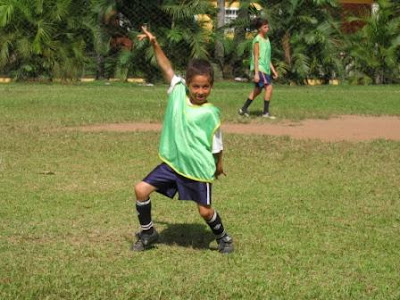
It is so hard to believe that today is Christmas!!! Time has flown by. Have we really been here in the Dominican Republic since mid-May? Our Blog shares lots of the events, good and bad, during that time. We are healthy, after a 2-3 week fight with the Dengue Fever, and we are praising God for who He is and specifically, the gift of His Son, Jesus Christ.
Christmas here in the Dominican Republic is different than we experienced in Guatemala. And that was different than Christmas in the United States. There is a blog entry about Christmas in Guatemala, but to sum it up, Guatemala was really into the big event. The Catholic church went all out at Christmas, with many processionals and activities. There was always something to go to, something to see. For instance, each evening in Antigua, Guatemala, Mary and Joseph would wander the streets looking for a place to stay. Of course, there was not any room to be found until they enter La Merced (a large Catholic church) on Christmas Eve. Guatemala had a lot of activity and there was always something to do. The Dominican Republic has a different flavor. It is much more relaxed and centered on being with family. Presents aren't actually given on Christmas Eve or Day, but rather Three Kings Day, January 6. We, being good camilleon missionaries tend to do what we want when it suits us. So we claimed our US heritage and open presents on Christmas Eve, Christmas Day, and yes, we will on Three Kings Day! While we spent the evening at home, we have been told that on Christmas Eve, people tend to visit the homes of friends. Sometimes carolers will go travel the streets, singing from the back of a pickup and one person said this can happen at any time of the night, or morning. It is also typical at Christmas here, for people to go away. For example, on Sunday, December 23, church was pretty empty because people had already left. The beach is a very popular destination. While at other times of the year, we can rent a condo on the beach for at night or two, during Christmas and New Years, the rent is doubled and minimum stay is for a week.
Some might wonder, were we able to buy some fun presents for each other? Yes, we bought many things here in the Dominican Republic, other things where brought with teams that came, and finally, many things were bought over the internet and came with our mail service. We all are having a wonderful Christmas. It is a blessing to give, particularly fun to give to your children and watch them bubble with excitement. Ben and Elena are presently are out in the yard playing on new scooters.
We want to thank you for your letters, in whatever form they come, to us. It is always a blessing to receive news from home. It is fun to hear what has happened in your life this past year. A special thank you to two families in Minnesota that went together and sent a box of fun surprises. Thank you.
We do wish you a wonderful Christmas and a Happy New Year! May the Lord bless you this coming year as you continue to serve Him in all that He calls you to. May Christ be lifted High!
With Love,
The Mackeys
Rick, Becky, Ben and Elena
Activities you might not consider for Christmas:
*Going to sit in a river and view a beautiful waterfall
*Tubing down a river
*Sunbathing (ok...this isn't really on our list either)
*Campfire in the back yard
*Hiking Mogote, a mountain that we can see from our office window. It keeps calling to Rick.
*Sitting on the porch in a rocking chair, wearing short, short sleeves and reading a book
Common theme...warm weather, being outside. Not your typical Minnesota White Christmas! It's not right or wrong..."It's just DIFFERENT!"




























